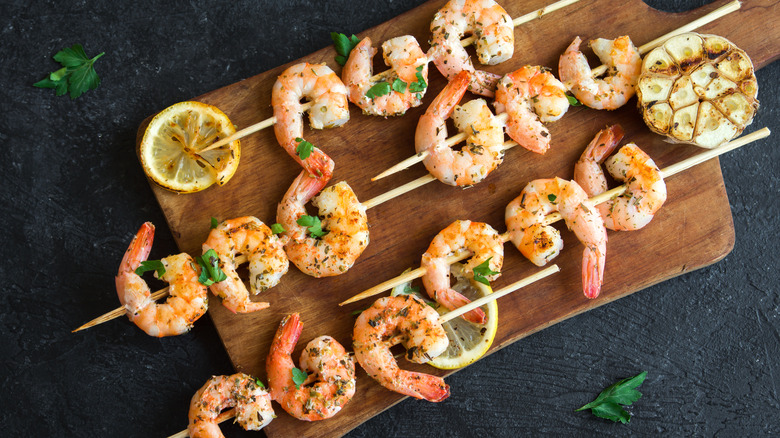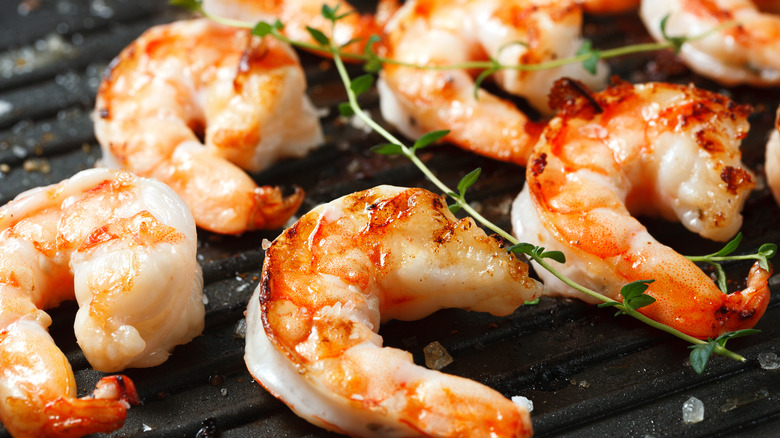The Step You Should Be Skipping When Grilling Shrimp
Shrimp is an incredibly popular seafood option, and for good reason. It needs barely any time to cook, so a shrimp-centric meal is typically ready in no time. If you often grill shrimp, though, you may be performing an unnecessary step. Here's how to shave off even more time from your simple shrimp dinner.
We know. It can be tricky to buy shrimp. There are so many varieties — from fresh vs. frozen to farm-raised vs. wild — it can be a challenge to decide. Be sure to follow the recipe you're using and to trust your fishmonger, and everything else should fall into place. Shrimp is pretty much delicious regardless (as long as it's fresh).
AllRecipes notes that when grilling, or using another high-heat method, leave the shells on. It saves you time and ensures that the flesh of the shrimp remains tender, not overcooked. Shrimp can overcook remarkably quickly, especially when grilling or broiling. Leaving the shell on protects the shrimp's delicate skin from the harsh heat during cooking. This method also typically yields juicier, plumper shrimp that offer more of a pure, shrimp-forward flavor, whereas peeled shrimp tend to lose that during the cooking process. The shrimp shell itself also adds lots of flavor during the cooking process. This all helps to minimize prep time and clean-up, too. It's truly a win-win. Besides, it can be fun to get a little messy when peeling and eating your cooked shrimp, especially in a group setting — the kids will love it.
How do you devein shell-on shrimp?
Peeling and deveining shrimp is a task begrudged by many, so this method really is quite welcome. As far as deveining shell-on shrimp, Sunset Magazine notes that you can cut a slit in the back of the shrimp (through the shell) and simply lift the vein out. You can also use a toothpick to do this.
However, you may be able to find already deveined, shell-on shrimp, so in that case there's almost no prep work whatsoever. Fine Cooking refers to this as making "easy-peel" shrimp. In doing so, the shrimp is now deveined, shell-on, and marinades/seasonings will more thoroughly flavor the flesh. Another good grilling tip comes from The Spruce Eats: be sure to skewer your shrimp prior to grilling. It ensures an even cook throughout and allows for you to flip the entire bunch of shrimp at once. They can be so temperamental and overcook so easily, so this helps to ensure consistency. Added bonus: They won't fall though the grates.
If you're insistent about deshelling prior to cooking, though, just be sure to not throw out the shells: They make an excellent stock. Furthermore, if this is all too fussy, rest assured that you can actually totally eat cooked shrimp shells. Many cultures do so, as Epicurous notes. If you're unacquainted, it can be unpleasant, but there are no inherent health concerns when it comes to eating shrimp shells.
No matter how you eat them, shrimp are amazing.

